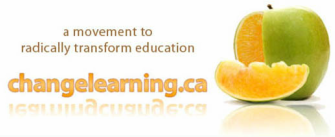|
Youngsters who are empowered as adolescents to take charge of their own futures will make better citizens in the future than did so many of their parents and their grandparents who suffered from being over-schooled, but under-educated in their own generations. 21st Century Learning Initiative
0 Comments
….In studying resilience-related themes.. I found was that opportunities to take chances, take responsibility for others and for yourself, were things that predict positive outcomes for kids growing up under very difficult circumstances. Yet I began to see the very same things that we know help kids get through tough situations, were actually being _denied_ kids who were in very, very good living situations, in very, very safe environments at home and in the community. Michael Ungar, Author of Too Safe For Their Own Good
When they’re young, we drive them to playdates, fill up their time with organized activity, and cocoon them from every imaginable peril. We think we are doing what’s best for them. But as they grow into young adults and we continue to manage their lives, running interference with teachers and coaches, we are, in fact, unwittingly stunting them. By continuing to protect them from failure and disappointment, many of our kids are missing out on the “risk-taker’s advantage,” the benefits that come from experiencing manageable amounts of danger. Michael Ungar, Author of Too Safe For Their Own Good
The principle reason high schools now enroll nearly all teenagers is that we can't imagine what else to do with them. Thomas Hine, Author
Learning is not something which requires time out from productive activity; learning is the very heart of productive activity. Shoshama Zuboff, Professor, Harvard University
We might find out there are things we can do…(in adolescence)... to make a better brain (that) is not through four hours a night of homework. What if we find that, in the end, what the brain of the adolescent wants is play, that is certainly possible. What if the brain grows best when it is allowed to play? Jay Geidd, Researcher
When they’re young, we drive them to playdates, fill up their time with organized activity, and cocoon them from every imaginable peril. We think we are doing what’s best for them. But as they grow into young adults and we continue to manage their lives, running interference with teachers and coaches, we are, in fact, unwittingly stunting them. By continuing to protect them from failure and disappointment, many of our kids are missing out on the “risk-taker’s advantage,” the benefits that come from experiencing manageable amounts of danger.
Read more Adolescents are capable of very strong emotions and very strong passions, but their prefrontal cortex hasn't caught up with them yet. Charles Nelson, Child Psychologist
|
Categories
All
Archives
August 2015
|

 RSS Feed
RSS Feed
